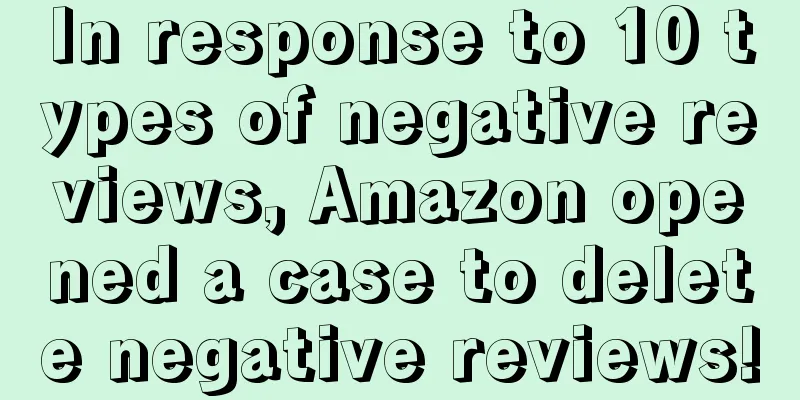There is traffic but no orders? If you don’t do this well, it will be useless no matter how much money you spend!

|
Recently, Salsify, a business experience management platform, released a new consumer research result, which investigated the consumption preferences of nearly 5,000 consumers in the UK, Germany, France, and the US. Consumers have relatively high requirements for product detail pages, and there are also some other obvious differences between countries. Research shows that nearly half of online shoppers will give up purchasing because of rough product pages, and supply chain issues and specific consumer channels occupy a secondary position among consumer influencing factors. According to the report, 46% of consumers in the U.S. will not buy a product if they can’t find detailed information on the product page. Additionally, 30% say they won’t buy a product if its images are missing or low-quality. This means that optimizing your product listings and providing the information consumers want through your brand page will be crucial. Other findings from the report include: 1. Brand trust outweighs fast, affordable shipping 45% of consumers said they would be willing to pay more for a similar product if it came from a brand they trusted, compared to just 30% in 2021. However, only 30% would pay more for free and fast shipping. 2. The rise of omnichannel shopping After a surge in online shopping over the past year and a half, consumers will browse and buy both in-store and online in the coming year. 68% of consumers said they will buy in-store, while 56% of the same group said they will also buy online through a shopping website. 3. Supply chain difficulties are still there In the past three months, 73% of consumers said they had been impacted by shortages or delays due to shipping, supplies or staffing. 4. Social media platforms have become the main shopping channel for parents Half of parents (53%) have purchased something directly on a social media channel in the last year, compared to just 25% of all non-parents. The report also pointed out that at the end of 2021, 40% of Americans were affected by supply chain shortages, while only 19% of French buyers were affected. British and German consumers were also less affected, at 28% and 29% respectively. In every country, most consumers said they choose private label products because they are cheaper, but in the U.S., 37% of respondents prefer retailer brands, while 8% of British, 13% of Germans and 14% of French people say they prefer third-party retailer brands. In addition, 26% of French people said they were most likely to buy directly on a brand’s website in the next year, compared to 19% of British people, 15% of Germans and only 13% of Americans. Editor ✎ Xiao Zhu/ Disclaimer: This article is copyrighted and may not be reproduced without permission. |
>>: The top 10 most downloaded apps in the United States in 2021 are revealed! TikTok ranks first!
Recommend
What is IronSource? IronSource Review
IronSource is a digital advertising company backed...
How to make Amazon seed links a hit? (The most detailed version) Don’t read it and you’ll lose out!
Many novice sellers may often hear other experienc...
E-commerce tools: 9 must-have plugins for Amazon FBA sellers in 2019
Most Amazon FBA sellers know the importance of us...
Seller costs are rising again! Etsy increases selling fees on Reverb platform!
<span data-docs-delta="[[20,"获悉,据外媒报道,近日Et...
US e-commerce growth will slow down in the next two years! Amazon is still the biggest beneficiary!
<span data-shimo-docs="[[20,"获悉,根据市场研究公司eM...
It’s terrifying to think that even big sellers who do Amazon reviews have encountered this scam!
We all know that there are three main problems to ...
Urgent! British Customs has stepped up its inspections, and these sellers may face heavy fines!
It is learned that the Ministry of Commerce recent...
Amazon sellers are competing with each other! The reason for the large-scale second instance review may involve the service provider's black technology?
<span data-shimo-docs="[[20,"我们写这篇文章的起因是这样...
In the early morning of May 11, a large number of sellers received suspension emails for illegal variants! Is there a possibility of misjudgment? How to solve this problem?
Mumu My C position Receiving an Amazon Violation V...
Newegg, a dark horse in the US live streaming e-commerce industry, has made millions of dollars in revenue in the first half of the year
According to DigitalCommerce360, in less than two ...
Earn 2 million a year! Working alone! The seller actually relies on this method...
I once heard a seller complain: I have been workin...
Amazon increases sellers' warehouse configuration service fees
Amazon has made a number of adjustments to logisti...
What is YDH? YDH Review
Yida International Logistics (Shanghai Yida Intern...
Attention! Infringement risks that cross-border e-commerce cannot ignore!
Starts in October Fall Prime Day, Halloween, Blac...
What is Rongsheng Overseas Warehouse? Rongsheng Overseas Warehouse Review
Shenzhen Wingsing Supply Chain Co., Ltd. is a one-...









